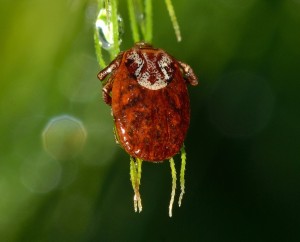Spring is finally here! Things may be very different now with the COVID 19 pandemic in full swing but the sun is shining, the cherry trees are blooming, and the eggs are waiting…
That’s right; parasites are excited about spring too! Now that your pets are spending more time outside, there are a few things that you should know about parasites. Parasites can be internal (heartworm) external (fleas and ticks) or intestinal (worms).
While exploring on your walk, your dog may consume parasitic eggs by licking the ground or from another animal’s feces. Your furry friends can also acquire larvae by eating fleas, snails, mice, birds, and rabbits. Cats can also ingest larvae from feces and the environment, and may even be hunting around your house without your knowing. Just because you aren’t receiving “gifts” at the front door doesn’t mean that your cat isn’t hunting (he just doesn’t want to share). Puppies and kittens can get parasites from their mother before and after birth, so it is extra important to de-worm while they are young.
Why should you be worried about parasites? They can cause internal harm to your pet, showing signs like weakness, weight loss, anemia, poor growth, vomiting, and diarrhea. Worst of all they can also infect you and your children. This is called zoonosis. One of the best ways to ensure your pet does not infect anyone in your family is to get them tested and treated and ensure that family members wash their hands thoroughly after contact with pets.
We encourage clients with new puppies and kittens to bring a fecal sample on your initial visit to Amherst so we can run an in-house test called a fecal flotation. We can detect the eggs of intestinal parasites from a fecal float, but it depends on the parasitic life cycle. Just because we don’t see eggs does not mean that your pet is clear of internal parasites. Signs detected by your veterinarian can help distinguish what is going on with your pet.
Remember to pick up after your pet and to de-worm your pet on a schedule decided between you and your veterinarian. If you would like to learn more about parasite control click here or please phone 604 221 7771 to speak with any of our friendly receptionists.


